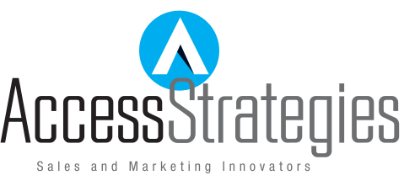You hired a sales and marketing agency to broker your brand, now what do you do? Managing a broker is not as simple as emailing a presentation, sending samples and waiting for orders to roll in. This article provides some insights that we have gathered from years of working with some of the world’s most successful brands. The topics that follow are not in any specific order but guide you to fully leverage a sales and marketing agency. Note that the industry is moving from the term “broker” to “sales and marketing agency.” These terms are interchangeably throughout this article.
The Kickoff
A kickoff meeting with your new broker team is the most effective way to hit the ground running. This meeting could be via conference call, web meeting, but ideally in person. This is your chance to meet everyone that touches your business, educate them on your brand, and answer any questions they have. Typically, the meeting follows a standard format:
- Introductions in which everyone explains their roles and account responsibilities
- Educational presentation of the brand
- Distribution and review of marketing materials
- Breakout meetings with key administrative staff and business managers to discuss initial plans, goals and expectations. Be sure to keep good notes on all of this, as you’ll need them later.
Documentation
To set up your sales and marketing agency for success, consider creating a binder, jump drive or cloud folder with everything needed to start selling and minimize the time you need to spend answering basic questions. Here’s a short list to get you started.
| Distributor Item Codes | Price List | Sales History |
| Guarantee Policy | Product Spec Sheets | Sales Presentation |
| Key Contact List | Promotional Calendar | Sample Ordering Guidelines |
| Pending Issues | Purchase Order Guidelines | Shelf Life Information |
The Team
You chose your broker because their organization was the best fit for your brand. That team is composed of players with very different skill-sets and personalities that you need to understand and motivate. Start by getting acquainted with your account executive (main contact). Learn how that person is incentivized – is it bonus money, a promotion, perks or something more intrinsic? It is amazing how far personal attention and appreciation go in motivating a broker team.
Your responsiveness is another factor of the team’s productivity. Broker managers that respond quickly and clearly empower broker reps to get the job done. This level of responsiveness also minimizes back-and-forth communication, giving you more time to focus on the bigger picture.
Expect and Inspect
During your kickoff meeting, you set your plans, goals and expectations. A common question we are asked is, “What is the best way to manage of all of this?” Our answer: it depends.
The size and complexity of your organization, as well as the time you can give to managing the broker will dictate the level of tracking and follow-up. On the more intense end of the spectrum, a brand may create a monthly broker scorecard that measures all key productivity indicators (KPI’s). On the simple side of the spectrum, periodic phone calls to discuss the state of the business are sufficient.
Regardless of the complexity, managing expectations should be mutual, allowing for open and honest communication that generates more opportunities to grow the brand. Here are some common threads of effective broker management:
- Recap the notes from your kickoff meeting to all parties involved and continue to review and revise as the business evolves.
- Maintain weekly or bi-weekly contact with your broker for the first few months. This will keep your brand top-of-mind and leverage the momentum started in the kickoff meeting.
- Request time to make sales calls with broker reps. You will likely learn more about their customer base through the preparation process, and they will learn more about your brand by hearing you pitch it.
- Send monthly sales reports to create a consistent baseline evaluation of the agency’s performance.
- Schedule quarterly reviews with your account executive to discuss the state of the business, exchange ideas and determine any needs the agency may have.
Remember, the agency is an extension of your brand that needs direction and regular communication to be effective. By utilizing some of the best-practices above, you will create a solid working relationship with management, sales reps and supporting staff.

